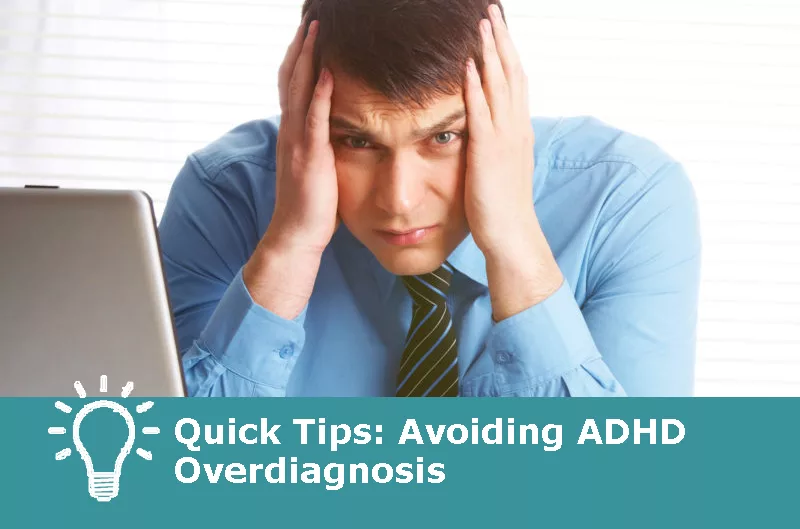As more and more patients come to us asking if they have ADHD, we have to be cautious that we are not overdiagnosing the condition. In one study, only 5% of 260 students presenting with possible ADHD symptoms ended up meeting the DSM criteria.
At universities, students who are high achievers seek stimulants to help them remain competitive, says Alyson Harrison, PhD, Clinical Director at the Regional Assessment and Resource Center, Queen’s University, Kingston ONT, and an expert on diagnosing adult ADHD. In an interview with The Carlat Psychiatry Report, Dr. Harrison gave advice on how to accurately diagnose adult ADHD, offering the following tips. First, though, five or more ADHD symptoms must be present, and a proper diagnosis must include the following factors:
Symptoms are not better explained by another condition, such as anxiety or depression.
If a patient meets all the above criteria, Dr. Harrison says you should probe further by asking the specific questions to ascertain how symptoms have actually affected functioning, such as:
A diagnosis of ADHD becomes more likely if you hear responses like: “I can’t drive because I just can’t keep my mind focused on what I’m doing, I’ve been fired from jobs because I sleep in late or I forget,” or “I’ve lost relationships because I’m just not paying attention.”
However, even with meeting all criteria, Dr. Harrison warns that diagnosing ADHD in adults can be challenging and somewhat subjective. She says that it’s important to remember that genuine ADHD is a disabling condition. She adds, if you feel someone who is in their 30s is suffering from ADHD, there should be some sort of trail or history that shows how the condition has disabled them.
Subscribers can read Dr. Harrison’s full interview on diagnosing adult ADHD. Subscribe The Carlat Psychiatry Report here.
At universities, students who are high achievers seek stimulants to help them remain competitive, says Alyson Harrison, PhD, Clinical Director at the Regional Assessment and Resource Center, Queen’s University, Kingston ONT, and an expert on diagnosing adult ADHD. In an interview with The Carlat Psychiatry Report, Dr. Harrison gave advice on how to accurately diagnose adult ADHD, offering the following tips. First, though, five or more ADHD symptoms must be present, and a proper diagnosis must include the following factors:
- Symptoms were present before age 12
- Symptoms have been present in two or more settings, and they substantially impair the person in those settings (e.g, at home, school, at work or while participating in activities with friends or relatives.)
Symptoms are not better explained by another condition, such as anxiety or depression.
If a patient meets all the above criteria, Dr. Harrison says you should probe further by asking the specific questions to ascertain how symptoms have actually affected functioning, such as:
- Have you had car accidents?
- Do you run red lights?
- Have you had any sexually-transmitted diseases? (research shows that STDs are unusually prevalent in adults with ADHD).
- Have you been arrested?
- Have you lost jobs, or been formally reprimanded on the job?”
A diagnosis of ADHD becomes more likely if you hear responses like: “I can’t drive because I just can’t keep my mind focused on what I’m doing, I’ve been fired from jobs because I sleep in late or I forget,” or “I’ve lost relationships because I’m just not paying attention.”
However, even with meeting all criteria, Dr. Harrison warns that diagnosing ADHD in adults can be challenging and somewhat subjective. She says that it’s important to remember that genuine ADHD is a disabling condition. She adds, if you feel someone who is in their 30s is suffering from ADHD, there should be some sort of trail or history that shows how the condition has disabled them.
Subscribers can read Dr. Harrison’s full interview on diagnosing adult ADHD. Subscribe The Carlat Psychiatry Report here.


_-The-Breakthrough-Antipsychotic-That-Could-Change-Everything.webp?t=1729528747)



